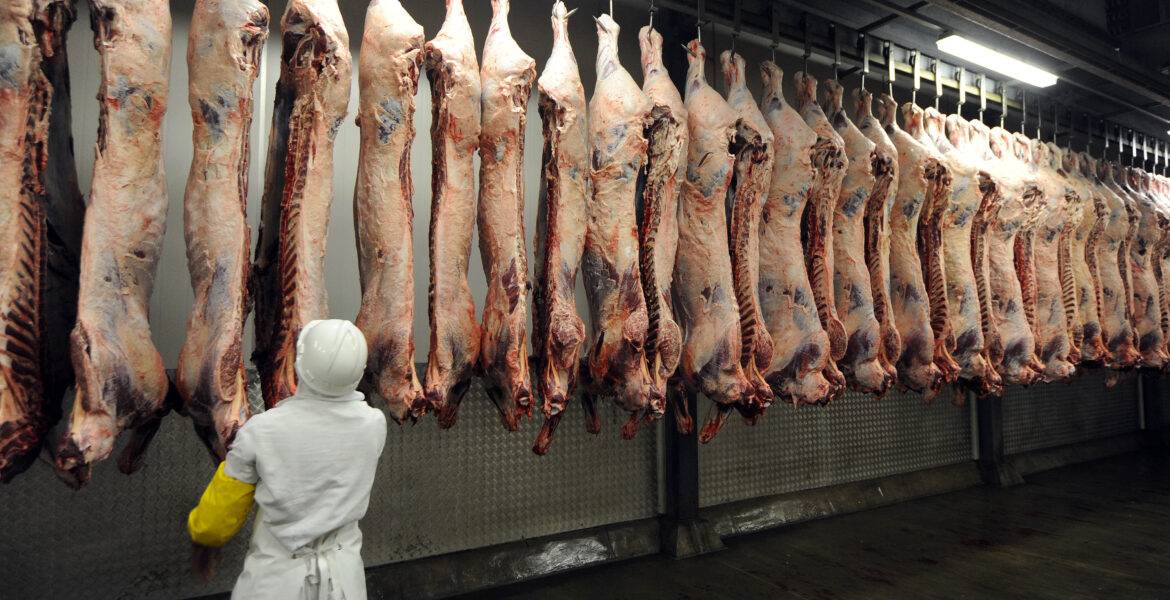GAZETTE REPORTER
The Botswana National Beef Producers Union (BNBPU), a representative body of organized cattle producers of farmers in Botswana, has expressed reservations about the Government’s plans to table the Meat Regulatory Authority (MIRA) Bill, which aims to craft the regulatory framework for the livestock and meat industry, primarily by means of the establishment of the Botswana Meat Industry Regulatory Authority.
In his second reading of the Bill in Parliament on Tuesday the 11th of July, Minister of Agriculture and Member Of Parliament For Shashe West, Fidelis Molao explained the genesis of the proposed legislation, “As a way of background and justification for why there was a need to establish the Meat Industry Regulatory Authority (MIRA), I wish to start by indicating that the livestock industry, specifically the beef subsector, has over the years experienced a drastic shift, from being one of the major contributors to the country’s Gross Domestic Product (GDP) at independence to the current less than 2 percent contribution. This reversal of the fortunes of the industry has manifested in the declining national herd and low investment in the sector. Mr Speaker the poor performance of the beef cattle subsector, has been a source of serious concern for all stakeholders. Mr. Speaker, farmers have been consistent in blaming the lack of policy reform as the cause of the dismal performance of the subsector. Specifically, the BMC monopoly has been associated with inherent inefficiencies, which have denied stakeholders the benefits associated with free market competition, including investment by both local and foreign investors.”
However, the BNBPU is of the view that the Government is overreaching with the proposed Bill.
“Unfortunately, the proposed regulatory framework for the meat industry appears not to be in synch with the regulatory framework for the communications sector which is more liberal and does not allow for the Minister to be given overreaching regulatory powers In excess of those vested of the independent regulator, instead of leaving Government to create an enabling environment for business to manage its affairs without Government’s interference,” said Joshua Galeforolwe, a former member of the BNBPU Exco and a farmer who was involved in the establishment of the multi-sector regulatory framework for the communications sector during his employment at the Public Enterprises Evaluation and Privatisation Agency.
According to a position paper on the Bill authored by the BNBPU, “the Bill is clearly intended to achieve total regulatory capture of the office of the Minister, who has been given unfettered powers, as the super meat regulator, which is not independent of political influence.”
The union further fears that “the envisaged regulatory framework would not give any investor confidence by virtue of its lack of separation from political interference.”
“To this end, the BNBPU will speak strongly against the contents of the MIRA Bill and bring out the Bill’s potential negative impact on the beef and livestock industry liberalization,” further reads the union’s position paper.
Contentions
Powers of the Authority
“The powers of the Authority, as set out in the MIRA Bill, need to be revisited in an effort to transfer back the regulatory powers of the independent regulator, which appear to be inadvertently or inappropriately assigned to the Minister,” posits the union.
Price Setting
“The MIRA Bill in Sec. 47 seeks to give the minister the power to prescribe prices for any class of livestock and meat products. “The BNBPU considers this provision that is intended to give the Minister the authority to set prices of beef and cattle to be offensive to the core principles of liberalization, where price controls are counterproductive, inefficient, and regressive and distort the market for any product. Price and market controls have destroyed the economies of almost all socialist countries,” the union says.
Authority of the Minister to give Directives directly to the CEO
“In terms of Sec.23 (5)(f) of the MIRA Bill, the Minister may confer on the CEO any duty that he may want him to perform with or without the say or knowledge of the Board. This, according to the union, would seriously undermine the authority of the Board,” advances the Union.
CEO Appointment And Minister’s Powers
“The Bill gives the Minister the authority to appoint the CEO, in consultation with the Board. “The point to take home here is that he consults the Board but is not obliged to agree with them and neither does the Board have to undertake the rigorous task of screening the candidates for the Minister.
The danger of leaving such senior professional appointments to political leadership may be tainted with political policies and practices like Cadre Deployment Policy in some jurisdictions or ‘Ke nako ya rona go ja’ in other jurisdictions when it comes to the selection of CEOs of regulatory authorities,” states the union.
Union’s recommendations
“The BNBPU strongly advocates for the MIRA Bill to be recalled from Parliament and sent back to the Drafting Office of the Attorney General for major revision so that the Bill is in synch with regulatory principles and economic policy of liberalization as well as to allow the drafters and sponsors of the Bill to give themselves adequate time to compare what they want to achieve and how they want to do it, with some of the regulatory success stories that they can learn by bringing the revised Bill more or less into line with the CRA Act, a tested and tried regulatory framework, only second to the RSA within the SADC region,” posits the Union.

